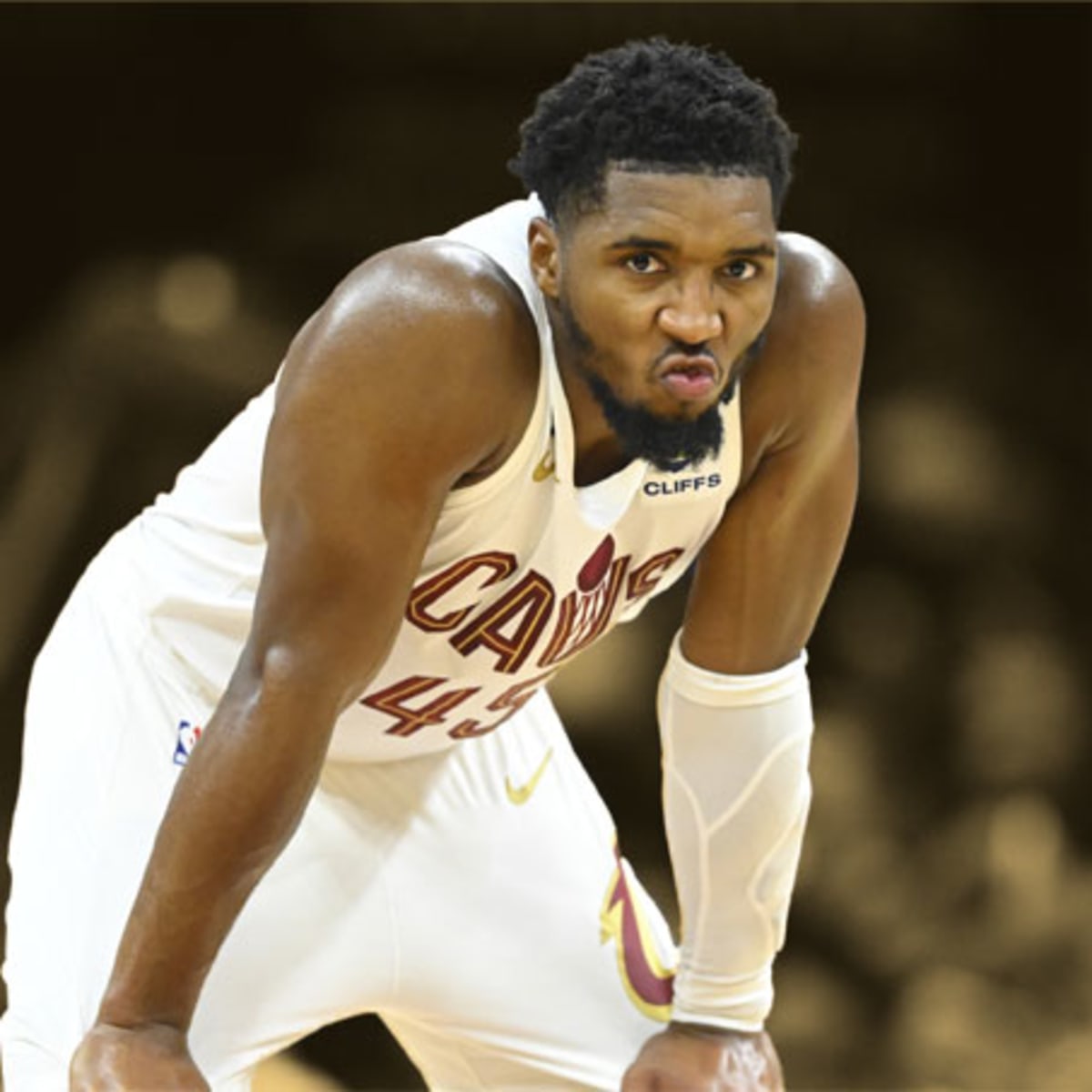Donovan Mitchell enjoyed his best season in 2022-23, averaging a career-high 28.3 points while guiding the Cleveland Cavaliers to 51 victories. He wasn’t just throwing the ball, either, as he broke his previous career-best true-shooting percentage mark of 61.4 percent.

Despite his accomplishments last season, whicvh included a Second-Team All-NBA selection, Mitchell’s stock hasn’t risen significantly. Other players are rising through the ranks and taking the stage on NBA talk shows, while Mitchell remains at his previous level (or perhaps slips further behind). This is mainly due to his poor performance in the Cavaliers’ first-round loss to the New York Knicks.
Why was Mitchell underappreciated after last season?
It was many of the Cavs’ players’ first trip to the playoffs, and certainly their first time playing with this group. Their squad construction left them with little options to match the New York Knicks’ defensive scheme, and the Knicks’ aggressive rebounding banged the relatively “green” front line around a bit. With J.B. Bickerstaff’s vanilla coaching, the Cavs were out early.
/cdn.vox-cdn.com/uploads/chorus_image/image/71818965/1453889397.0.jpg)
The playoffs are the most significant part of the season because every team’s ultimate goal is to win a title. It seems sense to consider this when evaluating a player. It doesn’t make sense, though, to separate such an evaluation from other contextual considerations, like as a player’s teammates and regular-season performance — it’s all part of the formula for evaluating a player.
What has happened to Donovan Mitchell this summer is that the significance of a single five-game series has been exaggerated while the context has been removed. As a result, in the view of those analyzing the league, other players have been pushed up around and past him.
Jamal Murray vs. Donovan Mitchell

Take one example to demonstrate this point. Every year, Seth Partnow of The Athletic publishes his Top-125 NBA players, divided into Player Tiers. It’s a great exercise, and Partnow has some pretty smart comments on players and how to judge them. In one area, though, he appears to have lost sight of his own criterion.
Partnow notes in his introduction, “One season is not a long time, even for the best of metrics, so I’d much rather use a multi-season sample.” He uses a multi-year perspective in the most of his assessments.
Donovan Mitchell was ranked in “Tier 3A” by Partnow, implying he is somewhere in the 19-24 area in the NBA. He admits to having a “stylistic distaste” for Mitchell’s game because of his “full hero ball” tendencies in the playoffs, and draws some fair comparisons between Mitchell and Devin Booker in terms of defensive capabilities; I believe it’s correct to compare Mitchell and Booker favorably on offense while giving Book the advantage on defense.

When he gets to Tier 2, where he has Jamal Murray, Shai Gilgeous-Alexander, and James Harden, Partnow throws everything out the window. If Partnow is attempting to take the “long view” with someone like Harden, why does he elevate Murray to impossible heights based on a single playoff run?
Murray had a fantastic stretch of games en route to Denver’s championship this season, but he did it while playing alongside a two-time MVP in Nikola Jokic, who dominates defensive attention and sets up teammates with his passing. Murray should be praised for his performance as the “No. 2,” despite the fact that he was the backup choice. Murray is seeing more defensive opportunities than Mitchell or other top possibilities.
Gilgeous, Shai-On both sides, Alexander is something of a conundrum, a player with only one top season under his belt and no postseason experience; why is he ranked higher than Mitchell? SGA is given the benefit of the doubt that his game would work in the playoffs, whereas Mitchell is penalized for one terrible series despite his team’s best offensive option having a strong offensive track record. Murray has never been asked to do so, therefore we have no idea how he would fare.

Murray looked fantastic in the playoffs, thanks in part to playing on a battle-tested team with the best player in the world. Despite playing on the same team as Mitchell previous season, Murray shot worse, averaged 8.3 fewer points, and was a worse defender by most metrics.
Jamal Murray had a chance to flourish in the playoffs because he shared the court with Nikola Jokic. He deserves a ton of credit for how well he shot the ball, but everyone needs to pump their brakes on anointing him as a Top-15 player. Donovan Mitchell has a more proven track record while playing with less supporting talent; at some point, the context has to matter.

Perhaps next season will be an opportunity for Mitchell to prove himself anew, either through regular-season dominance or further playoff success. Or perhaps the shadows of the past and the lack of an MVP Serbian on the Cavaliers’ roster will doom him to a certain level of disrespect when it comes to his peers.
